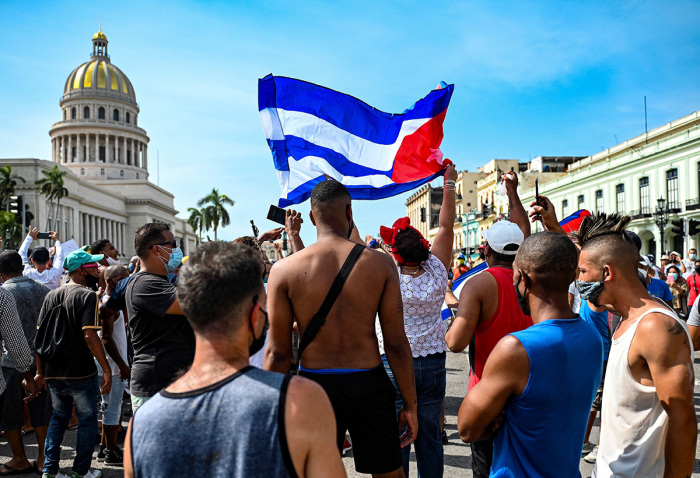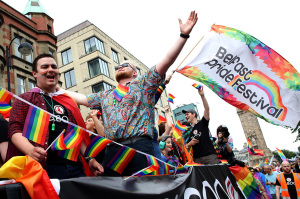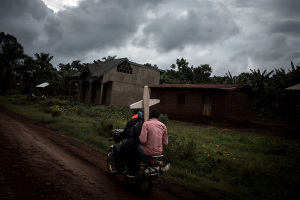PCUSA pastoral letter to Cuban churches blames US for problems in communist nation

A letter by an official with the Presbyterian Church (USA) to Christians living in Cuba declared their support for the nation’s people, but blamed United States' foreign policy for its poverty and instability while lacking any mention of communism or government repression.
Recently, due to factors including medical supply issues and an economic depression, there have been widespread protests in Cuba against the communist government, which has been in power since 1959.
The Rev. Jimmie Hawkins, director of the Presbyterian Church (U.S.A.) Advocacy Offices, penned a letter that was published last Friday in response to the protests in Cuba.
In the letter, addressed to “Cuban Siblings in Christ,” Hawkins wrote that PCUSA expressed its “solidarity to the Synod of the Presbyterian Reformed Church of Cuba, to your local congregations, presbyteries, and especially to each one of your members and their families.”
Hawkins went on to say that he and his denomination “recognize and confess the part our country plays in the suffering of the Cuban people.”
“The imposition of a blockade has restricted the Cuban economy for decades. Generations of Cuban men and women have been suffering from a lack of material resources, medicines, food, etc. U.S. policy has hindered the ability for Cuban families to maintain contacts between those who live on the island and the Cuban community abroad,” he continued.
“In the case of our Churches, U.S. policy has caused difficulties in normal relations with our partners. But we continue to be committed to fostering a new momentum of hope for both countries.”
The official letter made no reference to communism or the abuses of the current regime, other than to note that they believe in “God’s sovereignty and God’s ability to work through leaders and nations with different beliefs” and that “we should not absolutize or demonize our political antagonists.”
“May the God of peace and reconciliation shed light upon your lives during these times of trouble and give you wisdom for working towards the much-needed reconciliation process,” Hawkins concluded.
The Christian Post reached out to PCUSA for an explanation, with a spokesperson emailing a joint statement by Catherine Gordon, representative for International Issues in the Office of Public Witness and Valdir França, area coordinator for Latin America & the Caribbean in Presbyterian World Mission.
The statement explained that the letter was specifically centered on “our siblings in Christ in the Presbyterian Reformed Church of Cuba who have requested prayers and solidarity during this difficult time.”
The PCUSA's statement also explained that the progressive mainline denomination’s General Assembly has, in the past, denounced “all limitations on human rights in Cuba.”
Mark Tooley, president of the theologically conservative Institute on Religion & Democracy, told CP that he believed that the letter was “in sync with a long tradition” of PCUSA responding “to anti-regime protests in Cuba by blaming America for Cuba’s problems.”
“For decades the PCUSA and other mainline denominations have been mostly silent on communist totalitarian repression in Cuba. Some church officials have even praised it,” said Tooley.
“In contrast, the Methodist Church in Cuba recently and courageously declared the Cuban people have a right to free speech. Churches should stand for freedom and human dignity.”
For their part, the PCUSA's National Hispanic Latin Presbyterian Caucus released its own statement on the Cuban crisis on Tuesday.
They also called for the U.S. to end its economic measures against the island nation, but also denounced “the acts of repression by government authorities against those who demonstrate peacefully.”





























